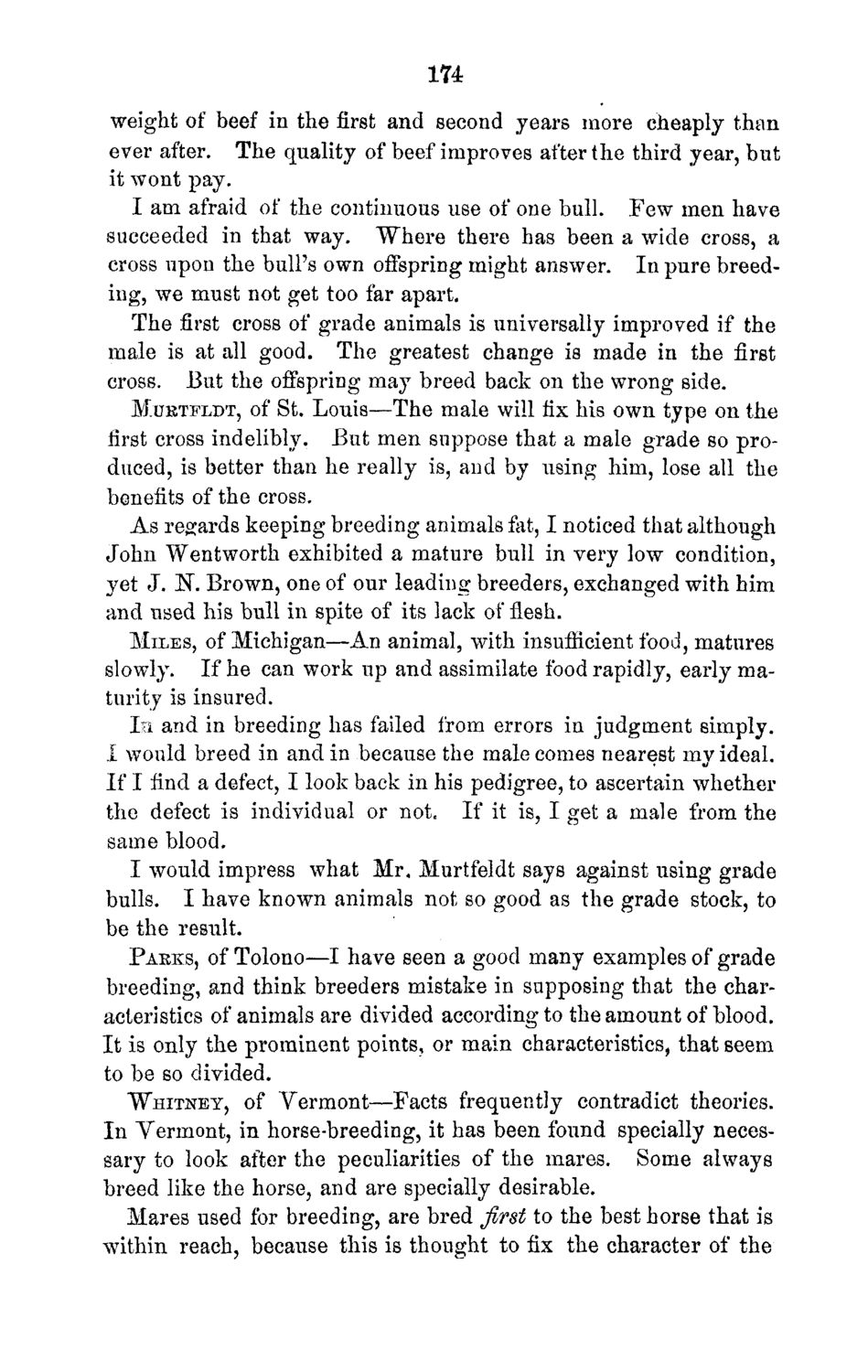| |
| |
Caption: Board of Trustees Minutes - 1870
This is a reduced-resolution page image for fast online browsing.

EXTRACTED TEXT FROM PAGE:
174 weight of beef in the first and second years more cheaply than ever after. The quality of beef improves after the third year, but it wont pay. I am afraid of the continuous use of one bull. Few men have succeeded in that way. Where there has been a wide cross, a cross upon the bull's own offspring might answer. In pure breeding, we must not get too far apart. The first cross of grade animals is universally improved if the male is at all good. The greatest change is made in the first cross. But the offspring may breed back on the wrong side. MUETFLDT, of St. Louis—The male will fix his own type on the first cross indelibly. But men suppose that a male grade so produced, is better than he really is, and by using him, lose all the benefits of the cross. As regards keeping breeding animals fat, I noticed that although John Wentworth exhibited a mature bull in very low condition, yet J. N". Brown, one of our leading breeders, exchanged with him and used his bull in spite of its lack of flesh. MILES, of Michigan—An animal, with insufficient food, matures slowly. If he can work up and assimilate food rapidly, early maturity is insured. l a and in breeding has failed from errors in judgment simply. I would breed in and in because the male comes nearest my ideal. If I find a defect, I look back in his pedigree, to ascertain whether the defect is individual or not. If it is, I get a male from the same blood. I would impress what Mr, Murtfeldt says against using grade bulls. I have known animals not so good as the grade stock, to be the result. PARKS, of Tolono—I have seen a good many examples of grade breeding, and think breeders mistake in supposing that the characteristics of animals are divided according to the amount of blood. It is only the prominent points, or main characteristics, that seem to be so divided. WHITNEY, of Vermont—Facts frequently contradict theories. In Vermont, in horse-breeding, it has been found specially necessary to look after the peculiarities of the mares. Some always breed like the horse, and are specially desirable. Mares used for breeding, are bred first to the best horse that is within reach, because this is thought to fix the character of the
| |